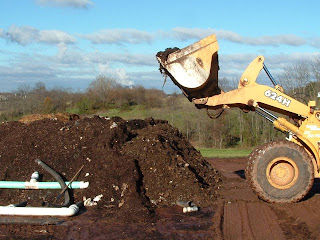Scavenger Hunt: Composting! Directions: This is a scavenger hunt that consists of questions relating to composting. In order to find the answer to these questions, you have to access the composting blog for the answers. Have fun!
1)
What’s the difference between composting indoors and
outdoors?
2)
How long does it take to compost?
3)
What are the different types of bins used in holding units?
4)
How much is the price to have a company service your home
for compost?
5)
What are the different types of holding units?
6)
How many years does it take to a make a Pit/Trench compost?
7)
What makes something compostable?
8)
What is the #1 problem with food composting?
9)
What does composting eliminate the use of?
10)
What can compost material be used for?
11)
What is one specific example of a greater scale of
composting?
12)
How much trash do New Yorkers generate per person?
13)
What is the Bokashi method of composting?
14)
Why can’t lemons or oranges be composted?
15)
How does composting reduce the amount of solid waste in
landfills?
16)
What percentages of Americans consume fast food every day?
17)
Which state has composting laws?
18)
What percent of litter is fast food?
19)
Why does compost sometimes have a bad odor?
20)
What do the numbers on each slide mean? (Slideshow: What is
the science of composting?)
21)
What does compost turn into?
22)
What happens to the compost when it gets to the sanitation
compost site?
23)
Where does the compost go after staying in the Sanitation
Compost site for 3 months?
24)
What are the three stages of recycling?
25)
What is the Green Cup Recycle challenge?
26)
When is the “NYC Compost Project in Brooklyn Soil Spa
Basics”? (Date and time).
27)
Why can’t you compost certain things?
28)
Why are 3 things you didn’t know you could compost?
29)
Why can’t you compost your pets waste?
30)
How does compost benefit the earth?
31)
What gas comes out of dumpsters?
32)
What are the effects of incinerators on our health?
33)
What’s the difference between aerobic and anaerobic
composting?
34)
What is an incinerator?
35)
How much does it cost to build an incinerator?













